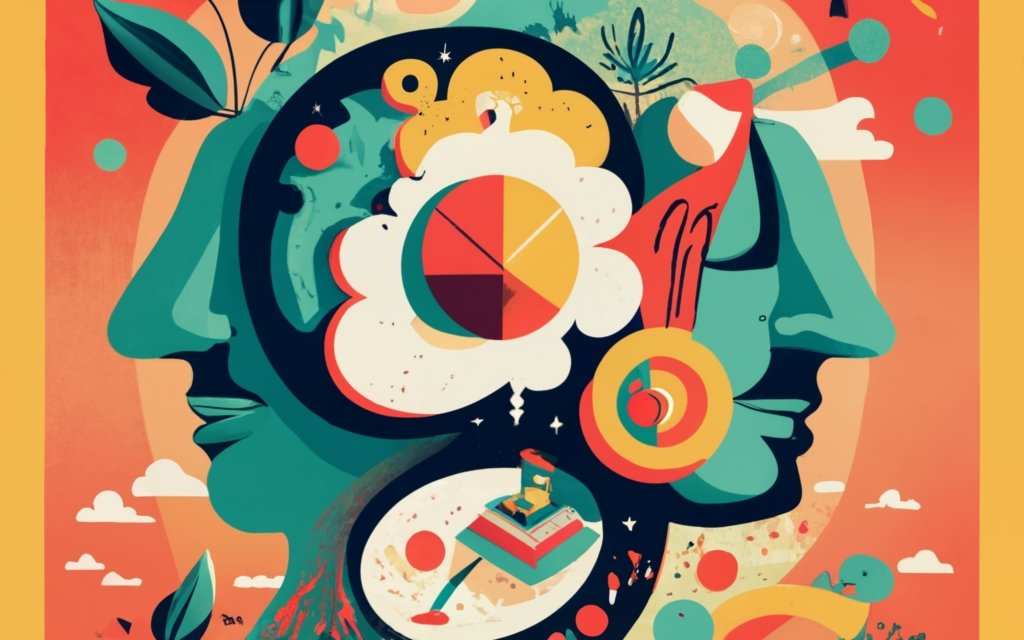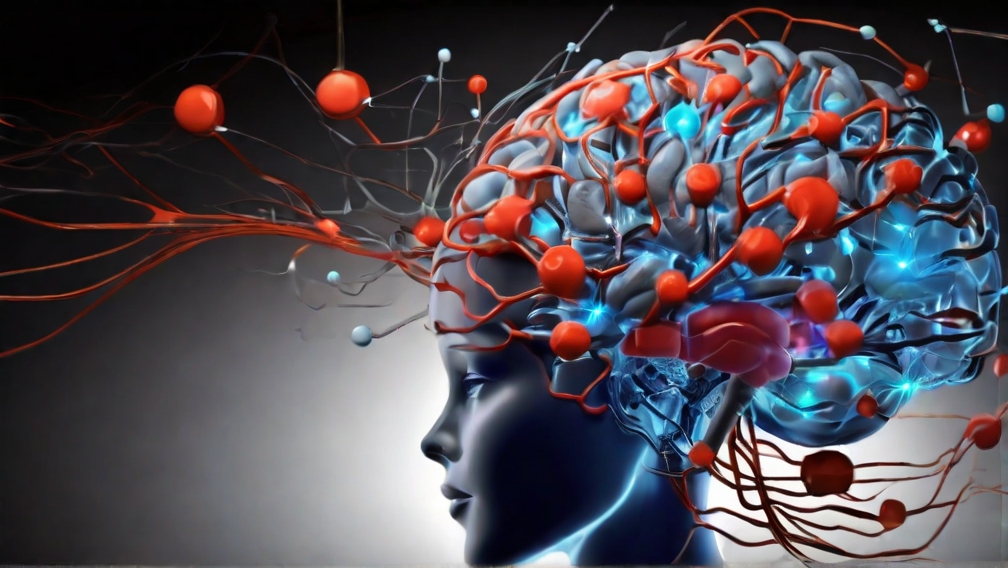Unlocking Brain Potential: Supercharging Cognitive Function Beyond 50
As individuals age, it is a widespread belief that cognitive decline inevitably accompanies this natural process. However, insights from neuroscience paint a different picture. The concept of neuroplasticity, which refers to the brain’s remarkable ability to adapt and change in response to new stimuli, highlights that memory, learning, productivity, and intelligence are not fixed traits but adjustable facets.
Harnessing Neuroplasticity for a Sharper Mind
Neuroplasticity provides the foundation for enhancing brain function beyond the age of 50. By consistently incorporating the following practices, you can boost memory, elevate awareness, expedite learning, and maintain a sharp mind throughout your life.
Mindful Eating for Brain Health

Diet plays a pivotal role in nurturing both the body and the brain. Substantial evidence suggests that adopting a diet rich in healthy fats, fruits, and vegetables can shield the brain from oxidative stress and vascular impairments often linked to age-related cognitive decline. The Mediterranean and DASH diets, emphasizing reduced sugar and saturated fat intake while promoting fruits, vegetables, nuts, seeds, beans, whole grains, and fish, have been hailed for fostering healthy aging.
Incorporate foods brimming with brain-nourishing phytonutrients, such as avocados, blueberries, broccoli, eggs, green leafy vegetables, wild-caught salmon, turmeric, walnuts, and dark chocolate into your meals. In parallel, minimize your consumption of packaged, processed, sugary, and fried foods.
In addition to the content of your diet, the timing of your meals can significantly impact cognitive health. Regular fasting patterns have shown potential in mitigating risk factors associated with neurological decline. Fasting prompts a process called autophagy, wherein the body rids itself of damaged cells, replacing them with healthier ones. To optimize these benefits, consider adopting daily fasting windows of 8 to 12 hours, with healthy individuals periodically extending this to 24 hours for enhanced results.
Revitalizing the Brain through Aerobic Exercise
Aging often causes the hippocampus, the brain region responsible for memory and learning, to shrink. Thankfully, research indicates that regular aerobic exercise can counteract this trend by increasing hippocampal volume. Moreover, studies reveal that six months of aerobic exercise can stimulate the growth of white brain matter, which houses axons transmitting crucial neurological signals. This evidence suggests that incorporating aerobic exercise into your daily routine can enhance memory retention, boost recall, and facilitate learning.
Strive for a minimum of 30 minutes of moderate to vigorous physical activity daily. Utilize tools like pedometers or smartwatches to monitor your activity levels, aiming for around 10,000 daily steps. These efforts not only safeguard your brain from age-related decline but also offer additional benefits such as reduced blood pressure, improved cholesterol profiles, and enhanced optimism. Walking directly on the Earth’s surface may even balance your body’s cellular charge. Embrace opportunities for movement, such as parking farther from your destination or taking the stairs, to maintain your youthful vitality.
Cultivating Vital Social Connections
Fostering friendships can be a valuable asset to your brain’s health. A longitudinal study from 2018, featured in Scientific Reports, demonstrated that social engagement significantly reduces the risk of dementia in older adults. Social connections provide opportunities for mental stimulation and new experiences, thereby increasing synaptic density. Quality of relationships is as crucial as quantity, making it vital to maintain positive bonds with children, friends, relatives, and neighbors. Diverse friendships allow older adults to tap into various resources to fulfill their social, health, and spiritual needs.
Expand your social network by participating in shared interest groups, volunteering, and engaging with community-based organizations. Enrolling in a class, joining a book club, or attending lectures can facilitate new connections. While building these relationships may sometimes push you out of your comfort zone, the ultimate rewards are greater health and happiness in your life.
The Lifelong Pursuit of Learning

The adage “use it or lose it” aptly applies to the aging brain. In our late twenties, neural synaptic connections begin to prune, followed by a gradual slowdown in neural electrical activity and degradation of the myelin sheath that protects brain cells in our thirties and forties. Learning new skills acts as a countermeasure, halting this pruning, slowdown, and atrophy. Learning, like exercise, stimulates growth.
Embark on new experiences and activities such as exploring unfamiliar places, acquiring new skills, mastering a musical instrument, learning a game, staying current with technology, expressing artistic talents, or attending cultural events. The key is to stay engaged with these new experiences, as the brain benefits diminish once activities become routine. The key to keeping your brain youthful is to stay immersed in the world of learning.
Cognitive decline is not strongly correlated with one’s physical age. In fact, the years following the age of fifty can be some of the most mentally stimulating and emotionally rewarding of your life. To achieve this, embrace an active lifestyle, adopt a nutritious diet, fuel your curiosity, and remain open to all the enriching experiences life has to offer. By maintaining an adventurous spirit, exploring new foods, building diverse relationships, and continuously seeking knowledge, your brain will remain agile, imaginative, and vibrant throughout your life.
The Ongoing Journey to Cognitive Vitality
The path to maintaining cognitive vitality extends beyond individual practices. It’s an ongoing journey, a commitment to lifelong learning and well-being. Embracing these principles with consistency and enthusiasm can lead to a life brimming with intellectual vigor.
Challenge Your Brain with Novelty
As you advance in years, it’s crucial to continually challenge your cognitive abilities with fresh experiences. Novelty serves as the lifeblood of brain health. Exploring new places, mastering unfamiliar skills, and engaging with diverse cultures can be exhilarating adventures for your mind. Learning to play a musical instrument, tackling a new language, or even delving into artistic expressions like painting or sculpting can foster the plasticity of your brain.
Stay at the forefront of technological advancements and scientific discoveries, for knowledge is a powerful asset that fuels intellectual growth. Embracing change and innovation keeps your cognitive faculties on their toes, always ready to adapt and expand.
Mental Fitness Through Brain Games
Integrating brain games into your daily routine can also stimulate cognitive function. Activities such as crossword puzzles, Sudoku, or brain-training apps can enhance memory, sharpen problem-solving skills, and boost critical thinking. These enjoyable mental workouts can help keep your mind agile and responsive.
Quality Sleep and Stress Management

Ensuring a good night’s sleep is another fundamental aspect of cognitive health. Sleep provides your brain with the opportunity to consolidate memories and rejuvenate, helping you stay mentally sharp. Effective stress management is equally vital, as excessive stress can take a toll on cognitive function. Engage in relaxation techniques such as meditation, yoga, or deep breathing exercises to counteract the detrimental effects of stress.
Expert Guidance for Brain Health
Seeking expert advice is a wise choice when it comes to maintaining cognitive health. Consult a medical professional or a neurologist for personalized guidance. They can provide assessments, recommend tailored strategies, and offer insight into any age-related concerns.
The Pursuit of Cognitive Excellence
In conclusion, age should not be perceived as an impediment to cognitive excellence. The human brain, with its remarkable capacity for change and growth, can remain vibrant and receptive well into the later stages of life. The keys to unlocking this potential lie in a balanced diet, physical activity, meaningful relationships, continued learning, novelty, mental workouts, quality sleep, and stress management.
By embracing these practices and principles, you can savor the rich tapestry of life with a mind that remains active, adaptable, and ready to seize new adventures. So, defy the stereotypes of aging and embrace the boundless potential of your brain as you journey through the years. Your intellectual vigor and zest for life will be your greatest rewards.
Conclusion: Unveiling a Bright Cognitive Future

In conclusion, age should not be perceived as an impediment to cognitive excellence. The human brain, with its remarkable capacity for change and growth, can remain vibrant and receptive well into the later stages of life. The keys to unlocking this potential lie in a balanced diet, physical activity, meaningful relationships, continued learning, novelty, mental workouts, quality sleep, and stress management.
By embracing these practices and principles, you can savor the rich tapestry of life with a mind that remains active, adaptable, and ready to seize new adventures. So, defy the stereotypes of aging and embrace the boundless potential of your brain as you journey through the years. Your intellectual vigor and zest for life will be your greatest rewards.
Frequently Asked Questions (FAQ)
Q1: Is it too late to start implementing these practices if I’m already over 50?
Certainly not! The brain remains remarkably adaptable at any age. It’s never too late to start adopting these practices to enhance cognitive function.
Q2: Are there specific foods that can boost cognitive health?
Indeed, foods rich in antioxidants, such as blueberries and green leafy vegetables, can support brain health. Additionally, foods containing omega-3 fatty acids, like salmon and walnuts, have been shown to be beneficial.
Q3: How can I find the right balance between challenging my brain with novelty and maintaining routine activities?
Striking the right balance involves incorporating novel experiences into your daily life without neglecting necessary routines. You can do this by setting aside dedicated time for exploration and learning while ensuring you maintain essential daily routines.
Q4: What are some mental workouts or brain games I can incorporate into my routine?
There’s an array of brain games and activities to choose from, such as crossword puzzles, Sudoku, brain-training apps, and even memory-enhancing techniques like mnemonics.
Q5: Can genetics play a role in cognitive decline, and can these practices mitigate those effects?
Genetics can indeed influence cognitive health, but lifestyle choices can significantly impact its course. Adopting these practices may help mitigate the effects of genetic predispositions.
Q6: Are there any age-related cognitive issues that may require professional assessment or intervention?
If you have concerns about cognitive decline or memory-related issues, it’s advisable to seek professional guidance from a healthcare provider or a neurologist who can offer personalized assessments and strategies.
Remember that age is just a number, and with dedication and a commitment to nurturing your brain, you can enjoy a life rich with intellectual vitality and fulfillment. The journey to a bright cognitive future is yours to embark upon, regardless of your age.







